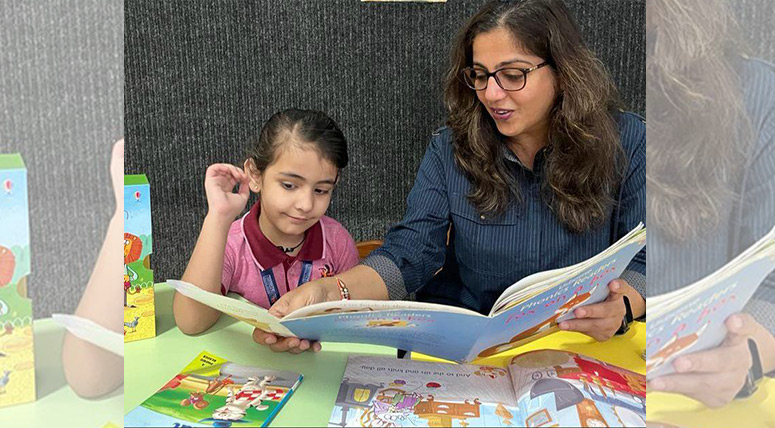“Development can only take place when children are actively involved, when they are occupied with a high, nonstop degree of concentration, when they are interested, when they give themselves completely, when they use all their abilities to invent and make new things, and when this gives them a high degree of satisfaction and pleasure.” – Ferre Laevers
The Early Years are the foundational years of a child’s life and therefore are some of the most significant ones. Often as parents, we tend to underestimate the child’s potential at this age because we feel that a child at this age will not be capable of doing much! We forget these are the formational years and play a vital role in shaping a child’s life.
What is important for parents and teachers to know is that the more we restrict children, the more we hamper their development and learning. Children are explorers by nature and should be allowed to explore under supervision, as that is how learning takes place at this age.
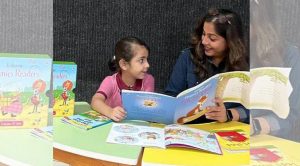
As well stated by Kathy Williams, “Childhood is a state which ends the moment a puddle is first viewed as an obstacle instead of an opportunity.” Let them explore, instead of giving them reasons why they cannot or should be around the monitor. Just keep a close watch that the child is safe, guide where necessary, but hold back your instincts to help your child arrive at a solution quickly. The more they do things themselves, the more they will have confidence in their own abilities. Exploration leads to understanding, thinking, learning and sustaining the will to learn. So create opportunities for your child to explore and, together, unravel the joy of discovery.
This brings me to another significant aspect of development and learning in the Early Years, and that is play. Aren’t memories of playing the most cherished space of one’s childhood? When a child is at play it is often said that the child is doing nothing or just playing; however, the play has a far deeper impact on children than what we usually understand. The play offers a plethora of opportunities for language development, cognitive development, eye-hand coordination, development of gross and fine motor skills, and far more. In, fact Albert Einstein believed that “Play is the highest form of research.” Through play, children learn about themselves and the world around them. It helps them understand how things work, which helps build their confidence.
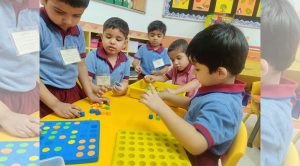
At the toddler stage, children are interested in playing alone; their attention is focused solely on the object of play and exploring it. As they grow, individual play progresses towards parallel play, where children begin to play alongside each other but not together and move towards social development. With time, children begin to interact and play together, sharing resources and participating in conversations about what they are playing. This aids their language development as well as socio-emotional skill development.
Play not only helps children learn, but it also sparks creative thinking. When children pretend to play, they are at their imaginative best, they are free to choose who they wish to be, a superhero, a rocket, an animal, a butterfly, a chef, or a person they know. During Role Copying Play p children imagine and enact various scenarios, which allows them the freedom to be creative. Besides aiding creative thinking, the play also helps immensely in strengthening their language skills. It helps them uninhibitedly practice the new vocabulary that they have learned. While playing with children, opportunities are provided for children to listen and speak, as it eventually leads to confidence with pre-reading, reading and writing skills.
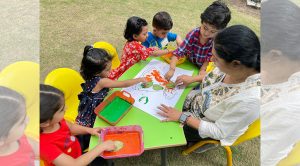
In my teaching career, I have realized that Play also guides children to find solutions to problems on their own. If a child is colliding two toy cars together, instead of saying don’t do that if you ask the question ‘Oh, it seems like there’s been an accident, what do you think we should do?’, allows the child the time to think and answer, and take the conversation in a manner that leads the child to arrive at solutions such as we should call their family, or call the doctor or check that no one is hurt.
Children also learn self-regulation during play. They learn to share, wait for their turn, value others, empathize, play together, create, and share the credit with ‘We did it’. These are essential life skills that can easily be developed through play.
At MRIS 21C, the Early Years classrooms provide innumerable opportunities for students to learn through play and exploration through the unique Learning Center approach. Various activities are planned and set up for children to explore hands-on and learn through participation in these activities. Each activity has a learning objective embedded in it, and children achieve that through independent or guided play, facilitated by experts and passionate Early Years teachers. This is one of the most engaging ways of ensuring learning and retention; But what is learning without application, and so it is ensured that our students get ample opportunities to apply what they have learned in a play-based environment, which stimulates all their senses.
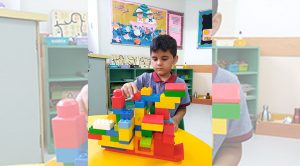
Having shared much about the importance of play in a child’s life and development, I would like to sum it up with Greg McKween’s words – “Play stimulates the parts of the brain involved in both careful, logical reasoning and carefree unbound exploration.”
Author: Nandini Awasty, Headmistress, MRIS 21 C, Faridabad.

